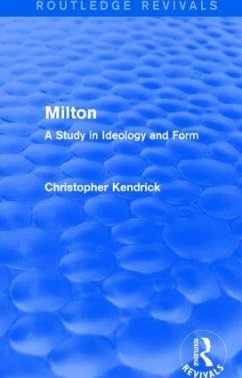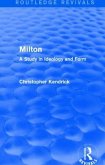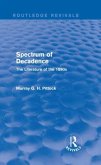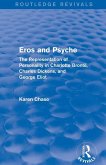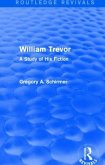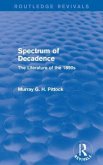First published in 1986, this title critiques the canonical view of Milton as an isolated Great Man, and reassesses the impact of the Puritan Revolution on two of his major works: the Areopagitica and Paradise Lost. The study focuses on the emergence of a discreet ethical framework of thought within the dominant theological code of these two works, arguing that this framework - integral to Protestantism - is also crucial to the construction of subjectivity under capitalism. Through an analysis of the rhetorical strategies of the Areopagitica and the generic composition of Paradise Lost, Christopher Kendrick demonstrates that Milton's 'individualism' both affirms the success of the Puritan Revolution and also exposes the contradictions between the capitalist subject's ethical freedom and the world of necessity of which that freedom is part.
Hinweis: Dieser Artikel kann nur an eine deutsche Lieferadresse ausgeliefert werden.
Hinweis: Dieser Artikel kann nur an eine deutsche Lieferadresse ausgeliefert werden.

